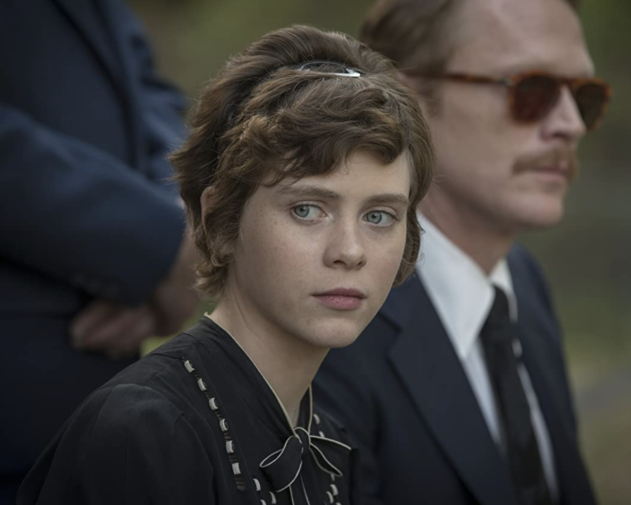Six Feet Under’s Alan Ball dazzles with his new film “Uncle Frank” and here’s some thoughts on it
Alan Ball continues to amaze with his explorations of the human condition, not just for gay Americans but for anyone who has ever had a secret, felt at war with himself or seeks to better his or her situation. The writer of “American Beauty” and creator of the HBO series “Six Feet Under” has written and directed a new film, “Uncle Frank,” that explores many of the themes common to all of Ball’s work, and does so in a thoroughly compelling 93 minutes.
Ball starts out “Uncle Frank” in a South Carolina small town, which is almost certainly not unlike the one where Ball himself grew up in Georgia. Teenage Beth (Sophie Lillis, who played the young Beverly in the recent “It” movies) dreams of expanding her horizons beyond the closed circuit of this Southern town, and at the birthday party for paterfamilias “Daddy Mac” Bledsoe (the always excellent Stephen Root) makes her feelings known to her professorial Uncle Frank (Paul Bettany), who encourages Beth to visit him in New York when she comes of age.
This is all spoken out loud, but what is not said at Daddy Mac’s birthday party is, as in all of Ball’s work, what truly matters. The secrets fostered and festered over decades in the Bledsoe home will out eventually—but not yet.
Fast-forward four years as Beth has made it to the Big Apple at the start of her college career. True to his word, Frank agrees to guide her around the city, just not this particular weekend, he tells Beth and her new beau Bruce (Colton Ryan). Overhearing one of Frank’s colleagues accepting an invitation to a weekend party, Beth and Bruce decide to crash same. At the door to Frank’s apartment, they are greeted by Walid (Peter Macdissi, who had a recurring role on “Six Feet Under”), who is not only excited to meet Beth but, dropping any pretense, announces he is Frank’s lover.
Yes, Frank is gay, and in the New York of the seventies, when the film takes place, he can be himself. Not so in the deep south from where he came, which is one of many reasons he returns so infrequently. Beth accepts Frank’s orientation at face value, though she has many questions, particularly which of her family members know.
She will find out sooner than she expects as a family tragedy requires Frank and Beth to return to South Carolina forthwith. The closer they get to South Carolina, the more nervous Frank becomes. We see flashbacks of Frank as a boy, in the company of another young man, seemingly happy. The closer Frank seems to get to the truth of his memory, the more he drinks, such that he confronts his truth at the same time that we do. And like all self-medicated boozing, it creates tension with Walid, and will lead to even more heartache.
The heart of the second half sees Frank, Beth and Walid (though Walid is kept hidden at the hotel) back in South Carolina for the reading of a will. When the executor has read the final words, life can never be the same for any of the Bledsoes.
As it shouldn’t. Like most secrets, the burden of concealment is often more difficult than facing the consequences of revealment, whatever they may be. Frank is right to be nervous about being outed to family and friends in the Old South, but he tortures himself about potential fallout far more than those he might tell could conceivably shun him.
Bettany’s performance is modulated and masterful, and we are heartbroken beholding this educated, erudite man struggle with his identity as well as a dark past. Family love in Ball’s universe is often contingent, and so it is for Frank and his father Daddy Mac. But the love from others, Beth and Walid chief among them, is given without reservation or condition. If Frank can learn to not only be loved but also to love himself, he may yet continue growing.
A fantastic effort from Ball that will leave you smiling even through the tears.
Now available for streaming on Amazon Prime.
news via inbox
Nulla turp dis cursus. Integer liberos euismod pretium faucibua



